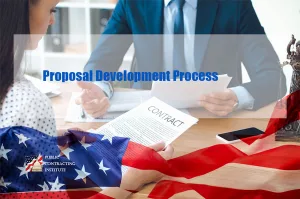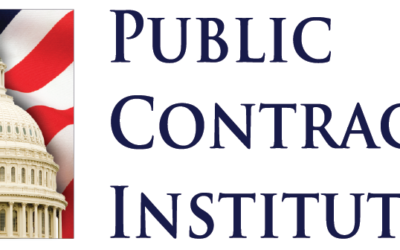| When it comes to collecting and building meaningful, on-target content for Federal Government proposal responses, focused interviews stand head and shoulders above traditional methods. Among small, mid-tier, and tier-one corporations, proposal development most frequently involves requesting various people from within your company and across your team to write sections or sub-sections of text. And that’s where problems often begin. In many business situations that I’ve experienced during the past 27 years, technical subject matter experts (SMEs), program and project managers or task leaders, and infrastructure support professionals are not comfortable with the process, or prepared to write narrative, much less conceptualize accompanying graphics. |
In addition, with technical SMEs and programmatic experts who are on direct charge on one or more Federal contracts, their #1 priority must be continued responsiveness and exceptional customer care. This immediate accessibility and hands-on support often involves many more than 40 hours each week. Infrastructure staff, such as those in Contracts, Accounting, Recruiting, Human Resources, and Procurement, also have competing internally and externally focused priorities.
How many times have you heard: “I’m not a writer.” “I’m certainly not an artist.” “And I have a day job.” Plus, and this is a big plus, many people simply do not write well—that’s not what they have been trained to do. Furthermore, they do not get many opportunities to practice and hone the craft of writing.
Nevertheless, many small and large Federal contractors continue to proceed down the same pathway of asking, and often requiring, their technical staff (in particular) to write proposals. This is precisely where informed interviewing conducted by trained proposal development professionals brings considerable value to the process. Interviewing, followed by review and validation of a first-order draft of the findings, goes a long way toward sustaining near 100% technical staff utilization rates, maintaining high levels of customer satisfaction, and conserving valuable Bid and Proposal (B&P) dollars. When conducted well, the practice also contributes to team harmony and enhanced morale.
To assist proposal professionals in framing meaningful interview questions, one proven technique is to build templates or checklists that align with each of your organization’s primary corporate core competencies. Let’s consider Cyber Security/Information Assurance, for example. Several key elements that your template should focus on include: (1) Confidentiality, Integrity, Availability (CIA); (2) NIST Special Publications (SP) 800.xx series; (3) Defense in Depth, with the key considerations being People, Network, Host, and Application; (4) Incident Management, (5) Penetration Testing, (6) Vulnerability Testing, (7) Risk-Based Security Testing, and (8) the critical operational balance between functionality/accessibility and Cyber Security. In addition to this type of template, interviewers should certainly leverage the Business Intelligence (BI) that your organization has collected over time about the:
- Specific contractual opportunity
- Hopes, fears, biases, critical issues, and success factors of the technical, programmatic, and contractual customer set
- Relevant technology, funding, and governance trends
- Most probable competitors
Well-done interviews can certainly streamline the proposal development process. Consider applying this approach with your next Federal proposal. It works!



